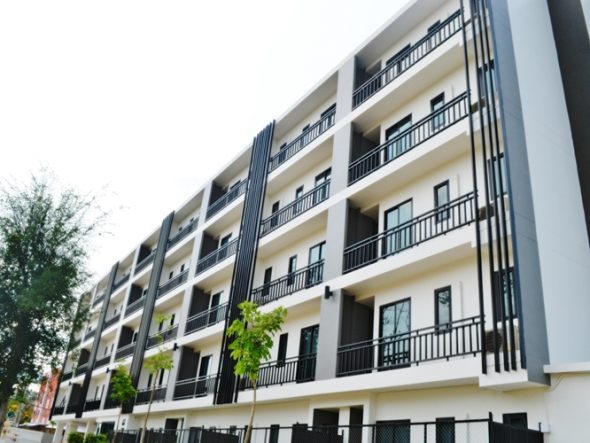
One of the things you will need to do during your first few months living in Thailand is to pay your utility bills.
Depending on if you are living in a condominium, an apartment, a townhouse or a house, knowing how to pay utility bills in Thailand will make settling in in your new country a whole lot easier.
In most cases, your only two utility bills will be electricity and water as, if you use gas for cooking, that is bought in propane bottles from any propane supplier and then connected to your gas cooker.
You can either pick up bottles yourself when you need them, or arrange for them to be picked up by the supplier when empty and changed out for a new bottle.

How to pay utility bills in Thailand if you live in a condominium
If you are living in a condominium or a serviced apartment, you will pay your utility bills at the reception desk. While this is convenient, you will usually find the amount you are charged for your electricity bill and your water bill is higher than if you were living in an apartment, townhouse or house.
Ask when you move in how many baht per unit you will be charged for your electricity bill, and then compare it with the government rate.
That currently runs at 4.33 baht per kilowatt hour (kWh). In a condominium or serviced apartment, however, you will often have to pay between 5-8 baht per kilowatt hour, so you will need to budget accordingly.
You water bill in Thailand, on the other hand, will be a flat fee of between 100-400 baht per person per month depending on the condominium.

How to pay utility bills in Thailand if you live in an apartment, townhouse or house
Living in an apartment, townhouse or house not only makes your electricity and water bill cheaper, it is actually very easy to pay them as well.
In most cases, you will have 3 options:
- Go to the local office of your electricity company or water company and pay it over the counter. The advantage of this is you will not be charged a service fee. The disadvantage is there is often a long wait as these offices deal with a lot more than just monthly bills.
- Your second option is to pay all your utility bills either at your bank or a post office. Just take the bill you received along with the amount due and pay a bank teller what is owed. There will be a service charge added onto each bill but, as it is not usually more than 25 baht (80 cents), it is not something you should be too concerned about. Depending on when you go, this is a faster option than the previous one.
- Pay at a 7-11. To do this, you must pay the bill before the due date. If you try to pay it after the due date, it cannot be processed at a 7-11. When you do pay, simply give the original bill to any cashier. They will scan it and then ask for the amount due. Once you have paid the amount, a receipt will be generated and stapled to your original bill. Both pieces of paper are then returned to you. Just like at the bank, you will be charged a service fee — in this case, usually 10 baht (33 cents).
